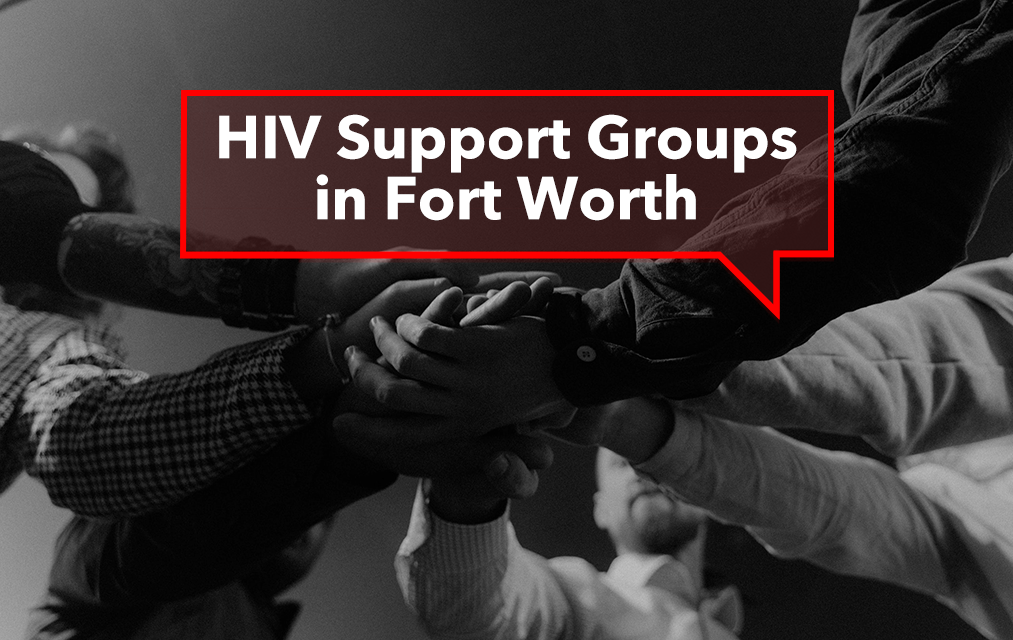HIV Support Groups in Fort Worth

Support. A small word with so many meanings and implications. It may seem like the whole world is suffering right now, and it can cause feelings of shame and embarrassment for those with existing health conditions who still need support for their challenges. Despite a worldwide pandemic, it’s ok to ask for help, whether that means mental health support or HIV support in Fort Worth.
More people than ever before are struggling with depression and anxiety as well. Whether your struggles are related to your health issues, diagnosis, the pandemic, or life in general, there are ways to get help.
There’s no need to be embarrassed about mental health issues because depression is one of the most prevalent problems for people living with HIV. What’s more, Mental Health America states that people with an HIV diagnosis are twice as likely to have depression as people who do not.
Reasons to Join a Support Group
One of the most critical pieces of overall wellness is talking about your feelings, especially with those who can relate. Many groups are offering HIV support in Fort Worth, but if you’re skeptical about support groups, consider the following benefits:
- Being a part of a community can help bring you knowledge about coping skills, local programs, and friends who understand what you’re going through.
- Speaking with others seeking HIV support in Fort Worth can help you understand your condition and how to best cope.
- Be a part of an open dialogue about treatment options and medications.
- Support groups provide you the opportunity to socialize. With many chronic health issues, isolation is widely prevalent but unnecessary. Building your confidence and sharing your story in a safe environment can have incredible benefits for your well-being.
Considerations to Explore When Joining an HIV Support Group

Thinking about seeking out HIV support in Fort Worth? Good. It’s essential to consider a few factors when choosing the best support for you and your circumstances, including:
- Where are the meetings held? How often do the meetings occur? How long are the meetings?
- Do I get along with my fellow attendees? Do their stories inspire me to grow? Has attending this group made me aware of other resources and groups?
- Remembering that healing after trauma or traumatic loss consists of 3 elements: remembering and mourning, telling one’s story, and reconnecting with life.
Local HIV Support Groups
Are you considering attending a support group? Arming yourself with knowledge and support is the key to wellness and well-being. See below for a list of education and support groups local to the DFW area.
- AIDS Outreach Center – Emotional Support: Offering individual, couples/family, and group counseling for families and those living with HIV. Sensitive and experienced healthcare professionals provide services with much experience in assisting those living with HIV.
- DFW LGBTQ Grief & Loss Support Group: For members of the LGBTQ community who have faced the loss of a spouse or partner.
- MPower Yourself Support Group: This group works to support people from various sexual orientations, ethnic backgrounds, and gender identities in the Dallas-Fort Worth community. Focusing on the 18-35 age bracket, attendees can participate in discussions covering key topics like self-empowerment, growth, relationships, HIV treatment/prevention, and general well-being.
- LOL: WITH A PURPOSE: Serving black cisgender and transgender women living with HIV, this group provides an inclusive environment where participants can share their experiences and strengthen together.
- HIV Early Intervention (HEI): This group provided services including substance abuse assessments, HIV testing/counseling, psycho-educational support groups, intensive case management, And risk reduction accountability
At Think Before You Sleep, the intention is not to put a dampener on your fun; just be safe and educated in your choices. In need of an HIV test? Think Before You Sleep is continually working to serve people living with or at risk for HIV with dignity and respect, offering a wealth of resources, information, and empowerment, ensuring good health for the mind and body.
Prevent the spread of HIV by getting tested, knowing the status of your partners, avoiding substance abuse that can adversely affect your decisions, as well as building relationships with healthcare practitioners you can trust.

